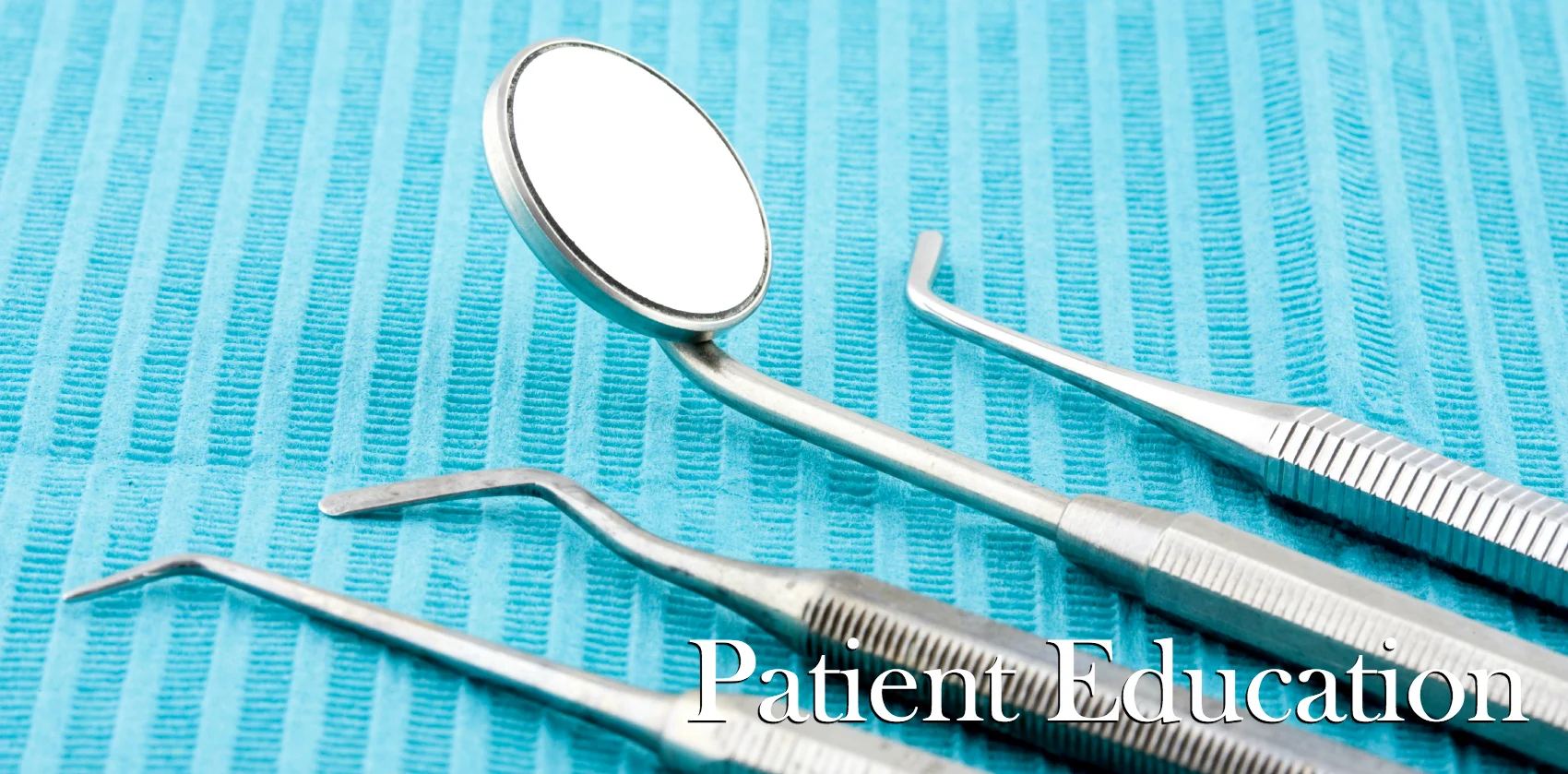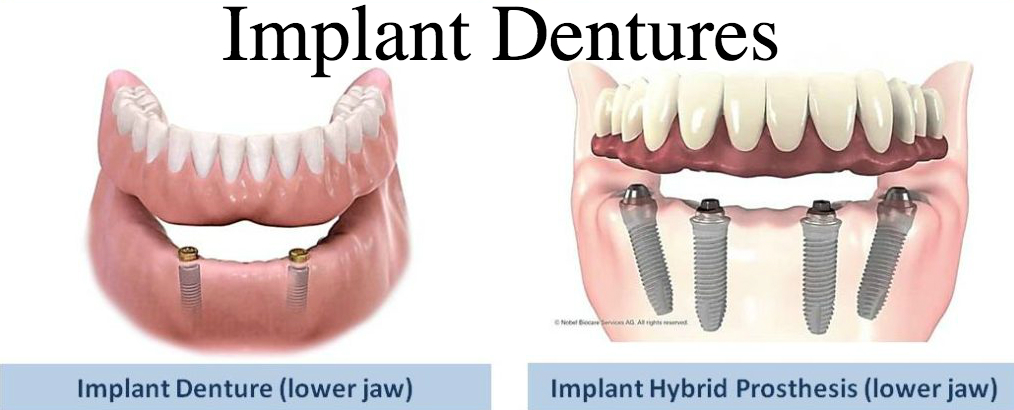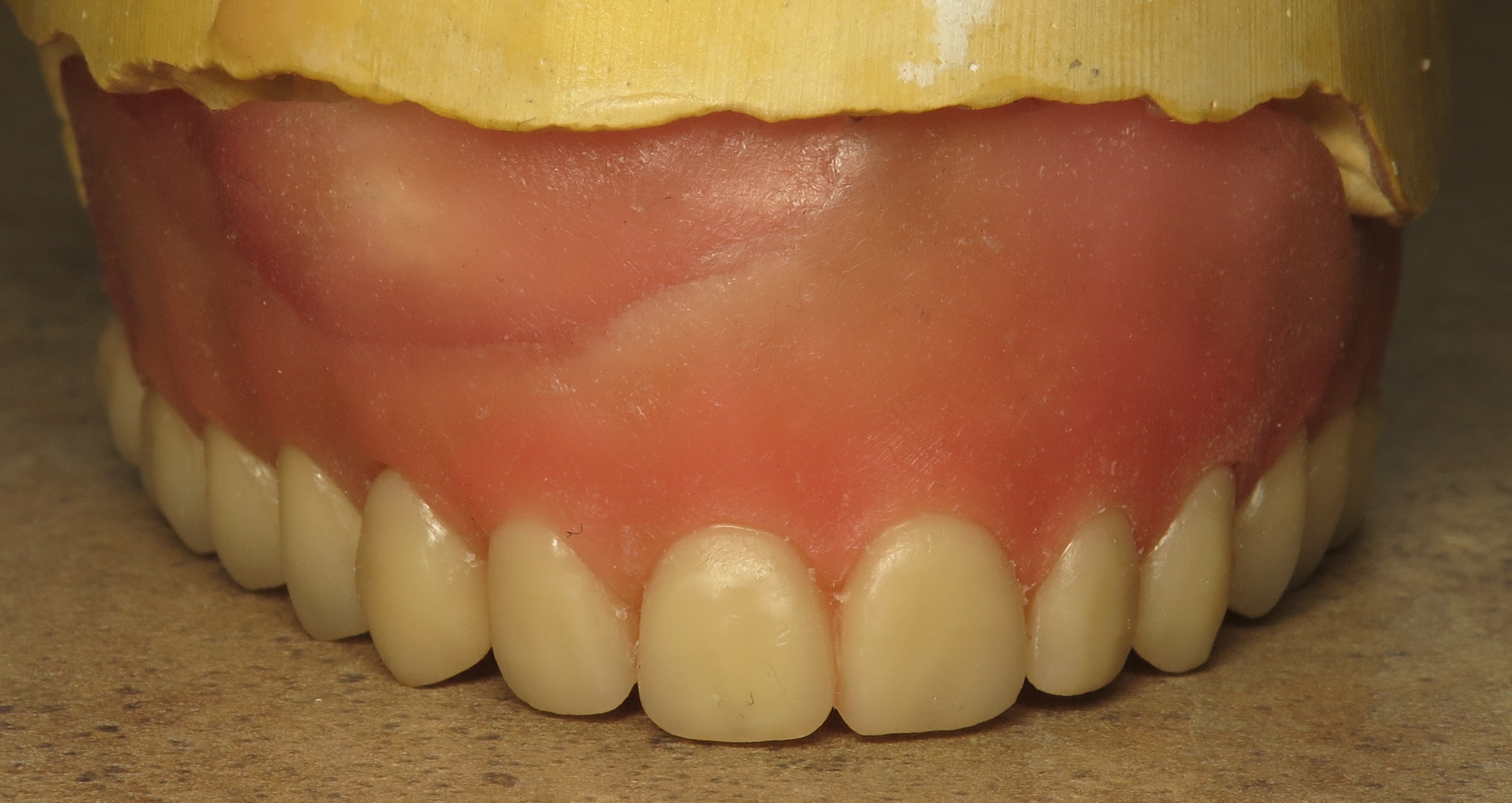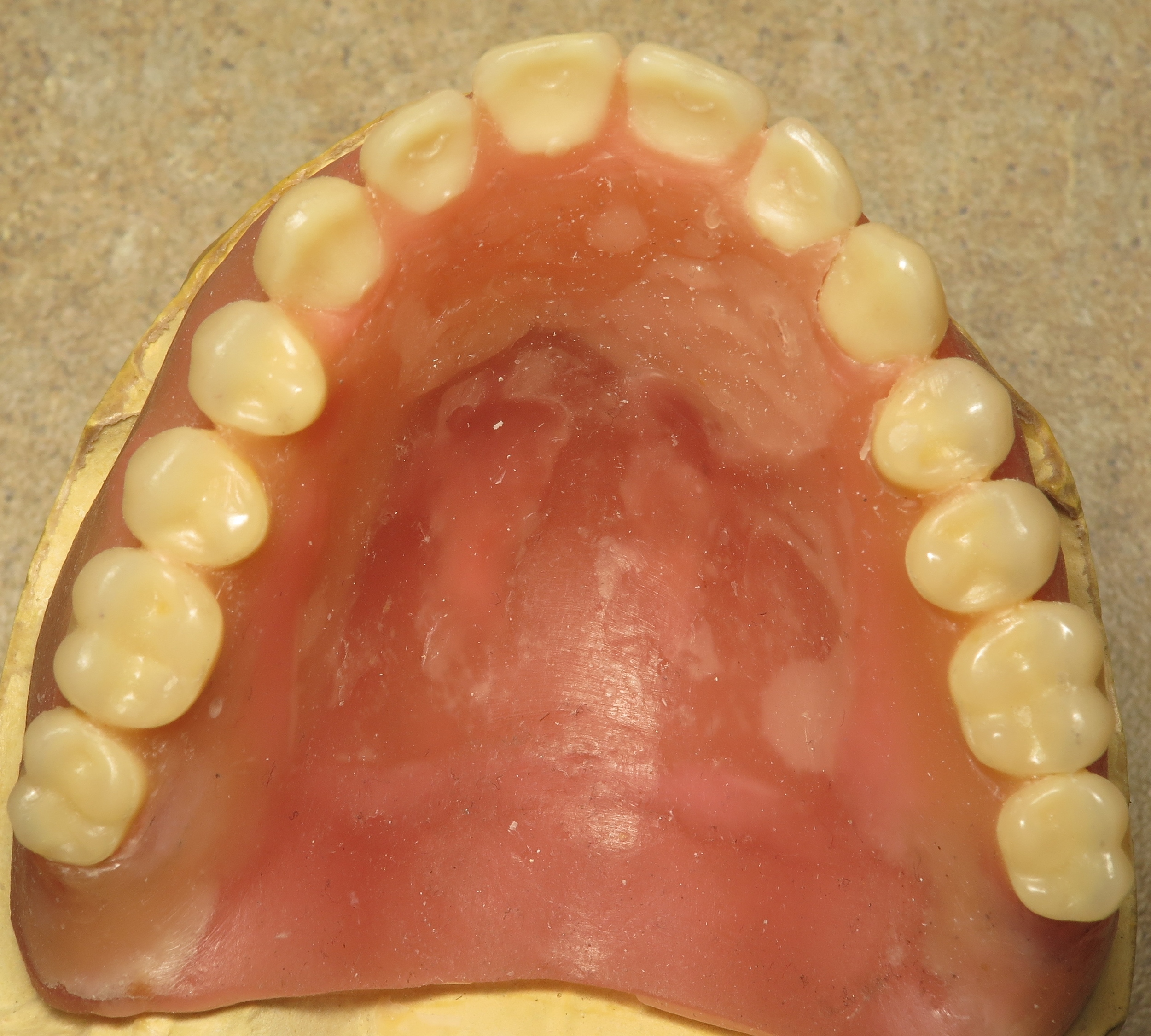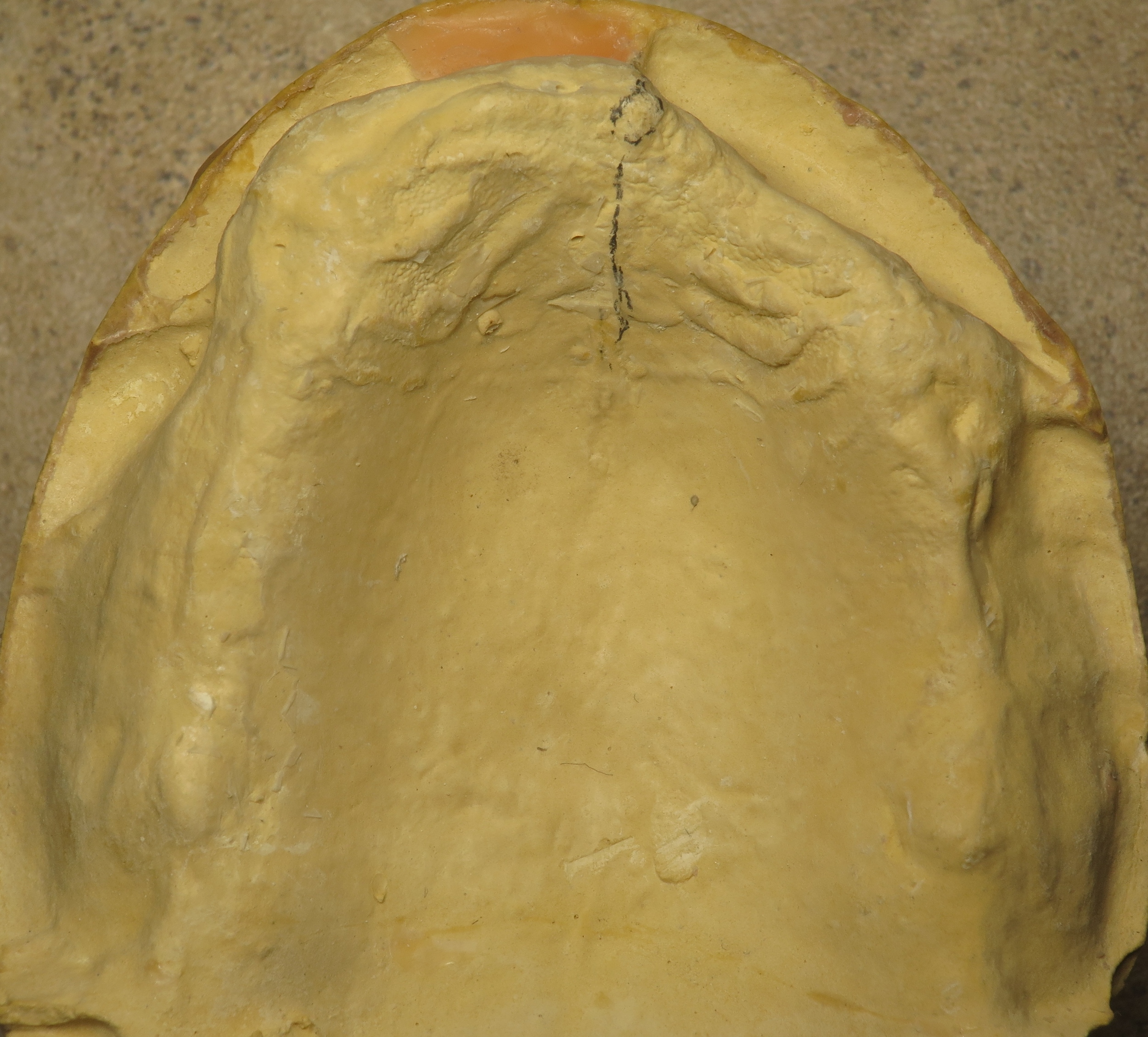(Left): An Implant overdenture retained by two implants. (Right): A hybrid implant denture resting entirely on four implants.
While we often consider dental implants as a solution to replace single missing teeth, they can also be used in conjunction with dentures to replace entire arches of teeth. Many of the aspects of denture use that patients find objectionable can be alleviated with the addition of implants. However, it is important to understand the different ways that implants are used to support dentures, and the benefits of the specific appliances.
Most patients with “implant dentures” are using a system called implant overdentures. Here, a fairly traditional denture rests “over” two to four implants on the top or bottom jaw. It is designed to be removable and snaps onto the implant anchors. This makes cleaning around the implants easy and convenient. When compared to regular dentures, implant overdentures have much more stability and retention on the soft tissue. This is particularly beneficial for the mandible, which does not benefit from the “suction cup” action that maxillary dentures have on the palate. It is important to note that the support for biting force with this system still relies on the gums and soft tissue. Thus, you will never be able to generate as much force as natural teeth. Additionally, some patients will still object to the removable nature and bulk of these appliances. However, they are an excellent compromise between usability, cosmetics, ease of cleaning and cost for denture wearers.
A newer system of implant dentures is the all-on-four or "hybrid" implant supported dentures. This appliance is permanently screwed or cemented on four to six implants on the top or bottom jaw. They are not designed to be removed, and thus are more difficult to clean versus implant overdentures. However, they function much more like natural teeth, as the entire arch rests solely on implants. They are much less bulky than traditional dentures and provide easier chewing and biting. Most all-on-four appliances are milled out of a single piece of zirconia. Thus, if any part of it chips or breaks, an entirely new arch of teeth needs to be created. The biggest drawback to this system is cost. Treatment for all-on-four dentures is typically two to three times the cost of implant overdentures. For this price, you are getting the best permanent replacement for natural chewing and eating.
Other factors, such as bone health, gum tissues, jaw relations and face shape will all play into your choice between implant overdentures and all-on-four implant dentures. Surprisingly, cosmetics varies from patient to patient, with some seeing more realistic results with implant overdentures. Making an informed decision relies on a thurough exam and consultation to create a comprehensive treatment plan. If you would like to know more about dentures, implants or other methods of replacing teeth, give our office a call!


